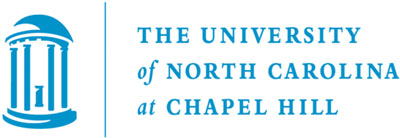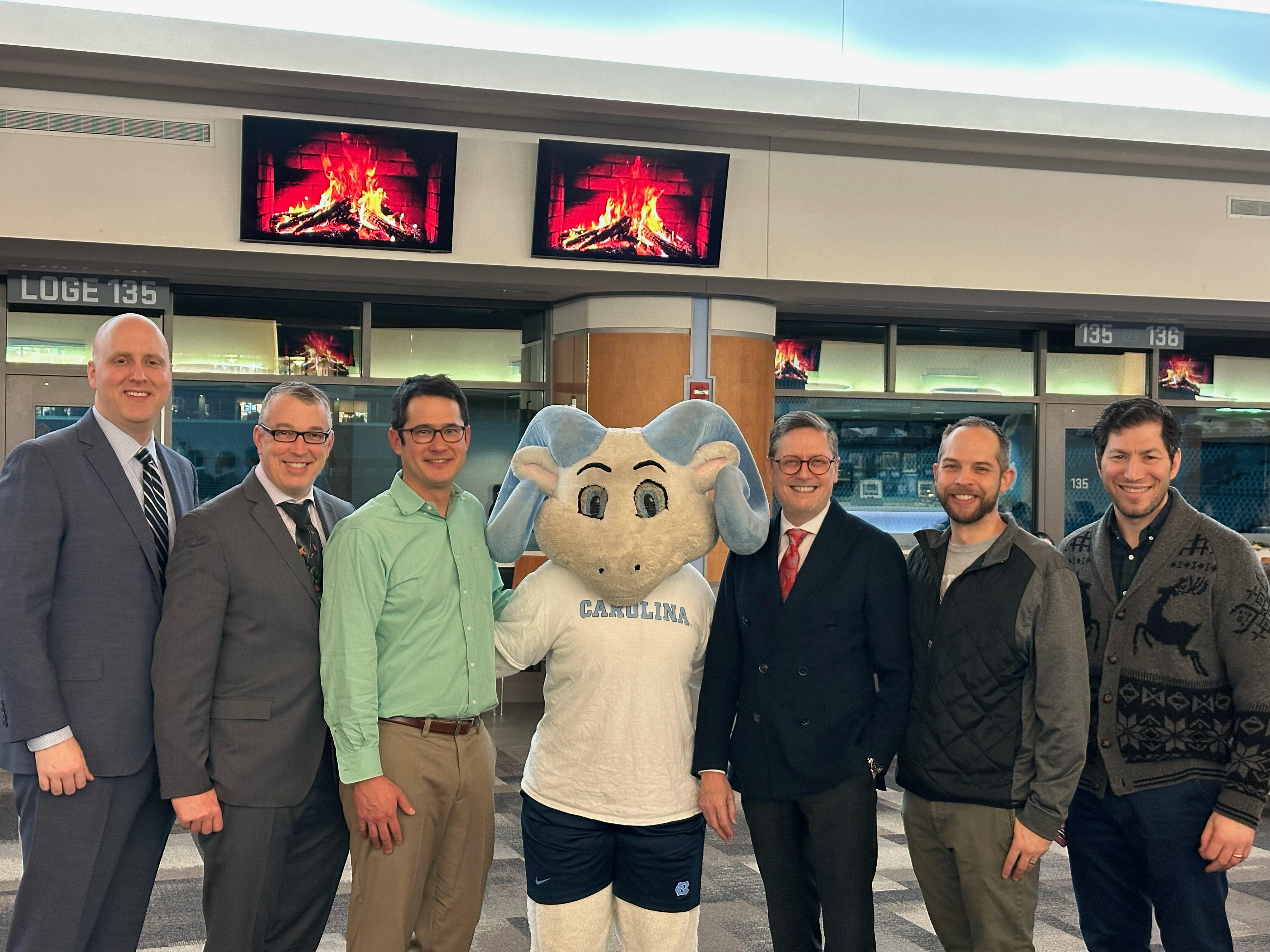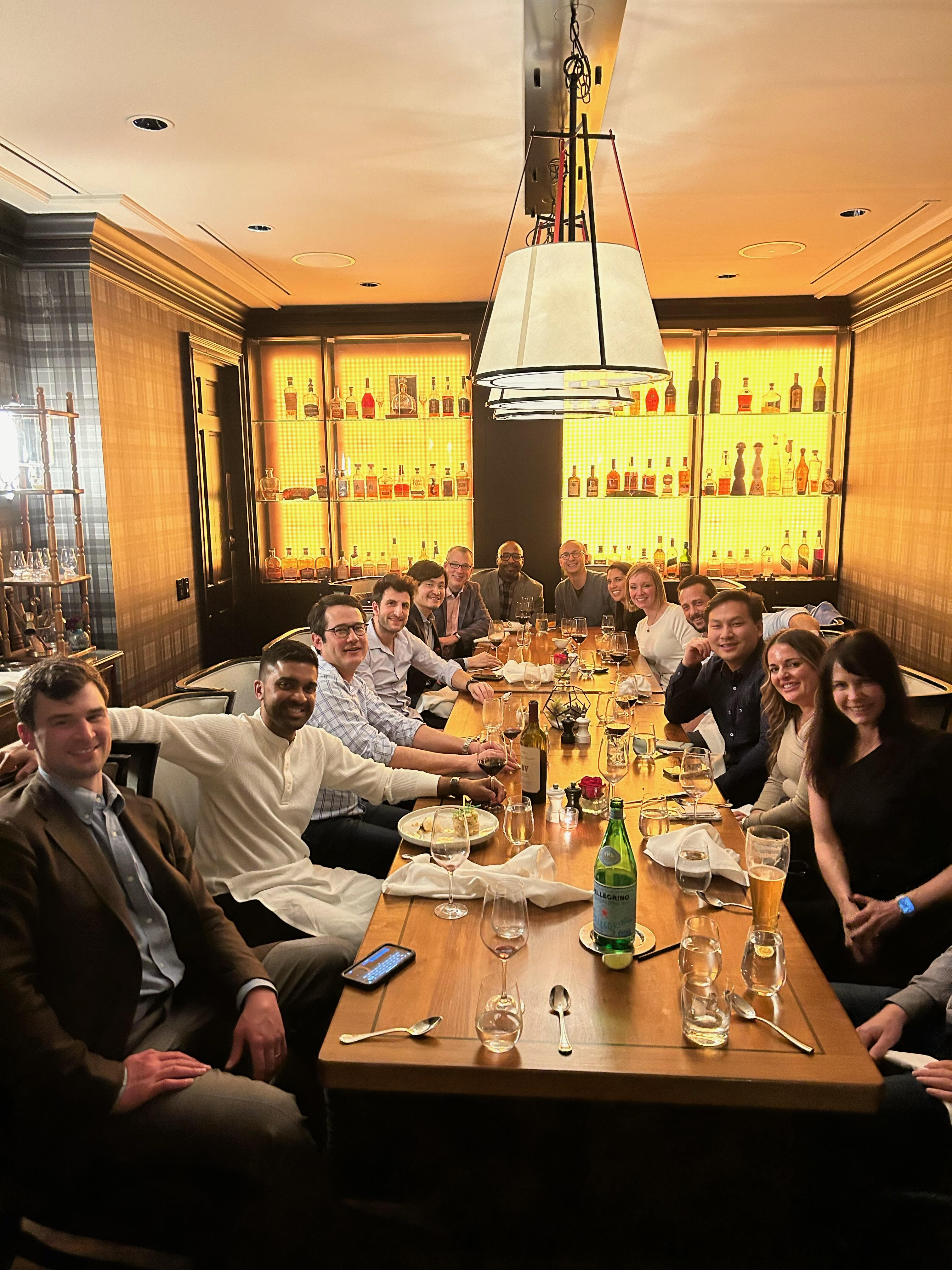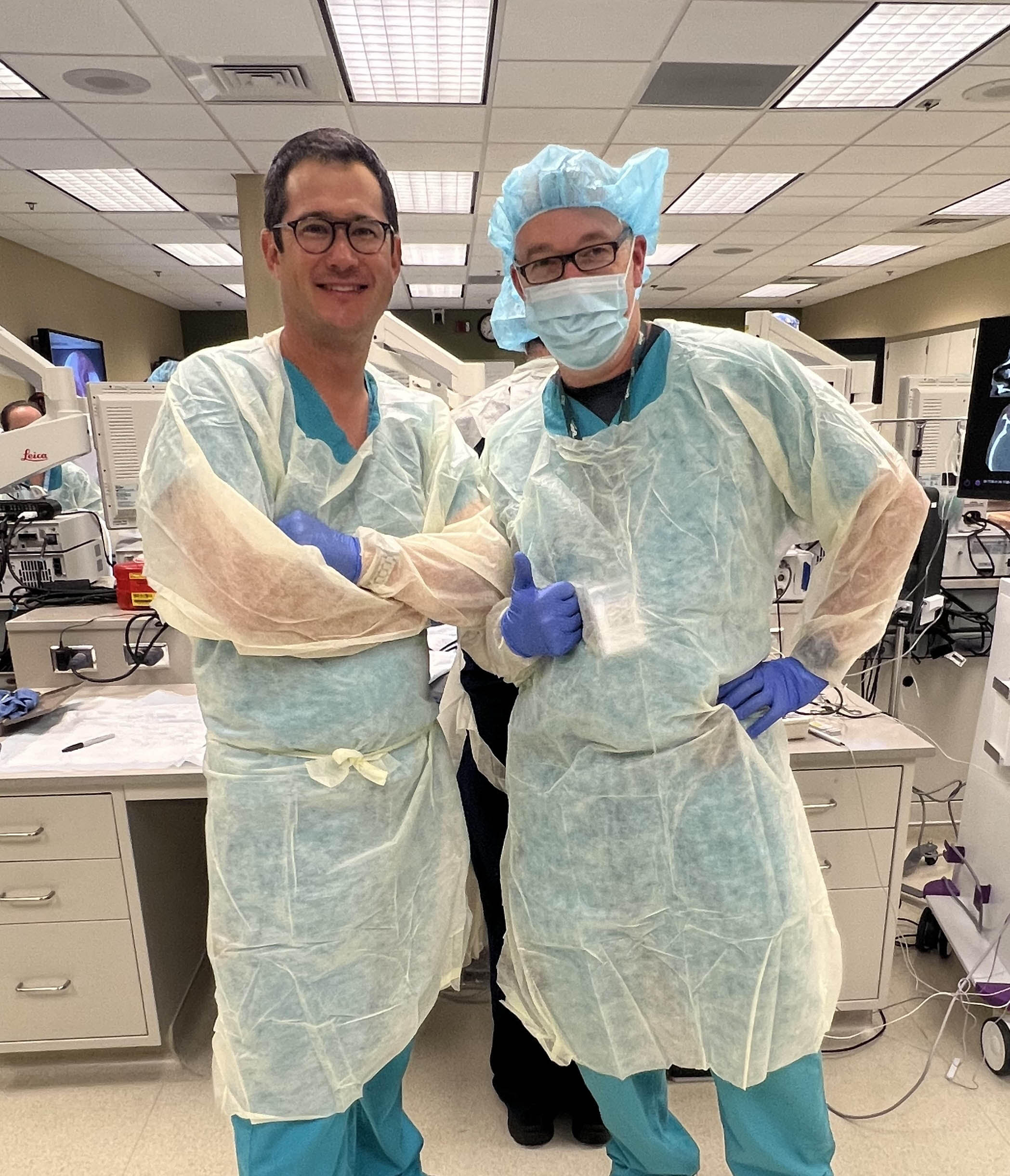UNIVERSITY OF NORTH CAROLINA NEURORHINOLOGY - ADVANCED RHINOLOGY AND SKULL BASE SURGERY FELLOWSHIPINSTITUTION & ADDRESS
SF MATCH PROGRAM ID#4411 FELLOWSHIP DIRECTORSCharles S. Ebert, Jr. MD, MPH FELLOWSHIP FACULTY
DEPARTMENTAL MISSION STATEMENT"The mission of the Department of Otolaryngology/Head and Neck Surgery at the University of North Carolina is to improve health care by enhancing the field of otolaryngology/head and neck surgery and by advancing its clinical application. To fulfill this mission, our objectives are the following:
OVERVIEW OF FELLOWSHIPThis one-year fellowship program provides comprehensive training in the medical and surgical management of sinonasal inflammatory disease, anterior and central skull base lesions (utilizing both endoscopic and/or open management), allergic disease, and orbital pathology. During the NeuroRhinology-Advanced Rhinology and Skull Base Surgery fellowship, the fellow is expected to further refine an existing knowledge base by continued reading and by taking an active role in the education of other learners. The fellows actively participate in a wide array of surgical procedures. The operative experience includes primary and revision endoscopic sinus surgery, endoscopic and open frontal sinus surgery, endoscopic septoplasty, orbital decompression, as well as endoscopic CSF leak and encephalocele repair. The fellows also participate in expanded endoscopic cases of midline and the anterior skull base, including surgery of the pituitary, suprasellar cistern, olfactory groove, clivus/upper spine and infratemporal fossa. In addition, the fellows have an opportunity to perform open approaches for tumor pathology of the skull base. Fellows are provided feedback on a daily basis after cases and clinic visits. Formal evaluations are performed biannually of the fellowship-training program, fellowship faculty, as well as of the fellows. Fellows are also required to self-evaluate on a biannual basis. Case logs are monitored and reviewed twice a year. The NeuroRhinology fellows at UNC interact in a very collaborative manner. They rotate between 2 distinct services and do not compete for any cases or clinic coverage. We have a strong commitment to team with excellent camaraderie, which requires helping each other take care of necessary add on cases that arise during the week. FELLOWSHIP DESCRIPTIONClinical Rotations:NeuroRhinology fellows rotate with each of the six faculty members in a rotation model. The fellows are rotated monthly: one fellow on the Rhinology (Senior/Ebert/Kimple) service and the other on Skull Base (Thorp/Klatt-Cromwell/Vuncannon) service. Elective time is also provided to allow fellows to focus on specific skills of areas of interest as well as for research. Weekly Schedule:Weekly schedules vary with each service. However, the fellows will have their own clinic one half day per week as well as time to schedule cases from their clinic. Weekly rhinology service conferences are held discussing the current literature and interesting cases. Research Responsibilities:NeuroRhinology fellows are participate in research during the fellowship. There are numerous opportunities in basic science, translational, and clinical research. Fellows are provided administrative time as well as elective time to complete their research goals. Fellows are expected to produce at least 2 manuscripts during their training. Travel expenses are also provided for presentations at national meetings. Diversity of Cases:The fellow will actively participate in a wide array of surgical procedures. Case numbers from previous years are as follows: The operative experience includes primary and revision endoscopic sinus surgery, endoscopic and open frontal sinus surgery, endoscopic septoplasty, orbital decompression, as well as endoscopic CSF leak and encephalocele repair. The fellow also participate in expanded endoscopic cases of midline and the anterior skull base, including surgery of the pituitary, suprasellar cistern, olfactory groove, clivus and infratemporal fossa. The fellow also have an opportunity to perform open approaches for tumor pathology of the skull base. Case Numbers:The following are cases performed by our fellows over the past 12 months. This does not represent the entirety of cases that would have been available for the fellows. At least approximately 10% of cases in each category were performed without fellows.
2021-2022 Case Log - Fellow #1 2021-2022 Case Log - Fellow #2 Call Schedule:Take call with Rhinology Faculty – varies month to month Additional Information:
CURRENT AND PAST FELLOWS
REQUIREMENTS FOR APPOINTMENT
APPLICATION INFORMATIONApplications are reviewed during first 2 weeks of February and interviews are typically offered by the end of February. Two interview dates are generally available between March and May. CONTACT INFORMATIONFellowship coordinator: Danielle Pocket: 984.966.3344 | Fax: 919.966.7941 Or via email to: [email protected] please also cc [email protected] |

 University of North Carolina
University of North Carolina


